
the most up-to-date marketing strategies
that actually work
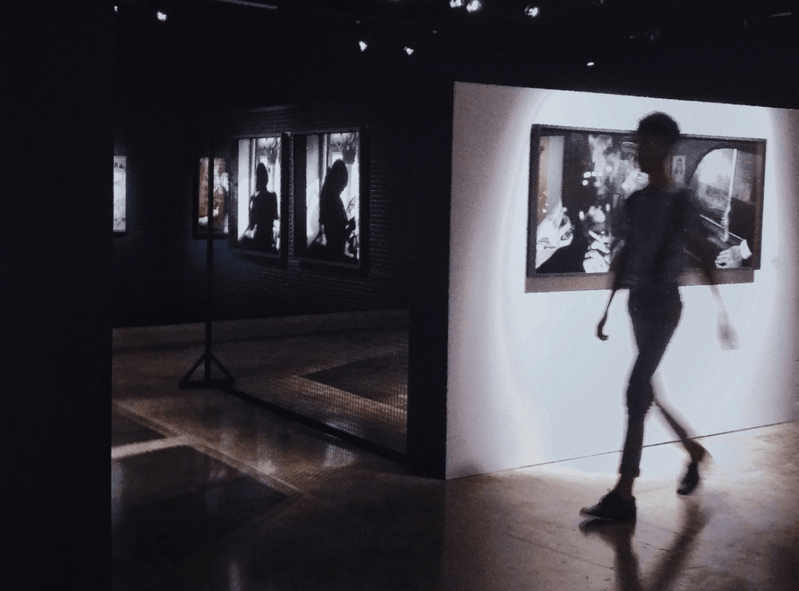
What if I told you that there is one specific approach that many artists are following today this is earning them over $100,000 — each year — from their art?
What if I further told you that these artists are NOT famous, they are not widely distributed in art galleries across the world, they are not capturing sales within the interior design nor licensing market, and they do not even sell their art in online gallery websites like Etsy nor Fine Art America?
I’m guessing you wouldn’t believe it.
You’d might even call it nonsense, but it’s completely true:
–Artist Bill Stidham sold over $15,000 worth of wall art last 4th quarter.
–Photographer John Martell sold $45,000 in the same time period.
–And painter Megh Knappenberger walked away from her first year with over $200,000 in sales.
What’s their big secret? What did they discover?
It’s simple: Artists and photographers that adapt to the modern way of selling art in time for the holiday season profit enormously from it.
You create, we do all the technical stuff that makes it sell.
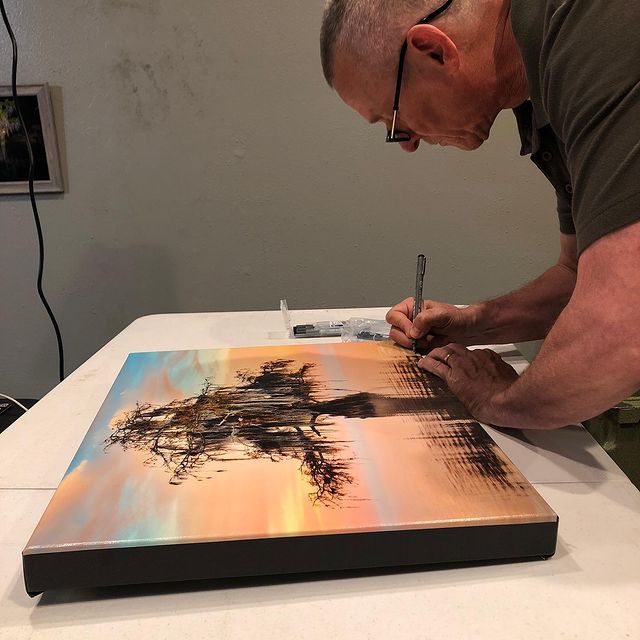
For decades, artists and photographers have been following the “traditional” way of selling art.
This includes trying to sell through art galleries (whether offline or now online), trying to get publishers or licensors to represent you, as well as exhibiting at local art fairs. Typically, an artist would have a portfolio website to back up this strategy, serving as an online business card.
They might also try the “spray and pray” approach of uploading your work into online galleries like Fine Art America, Saatchi Art, which are just other people’s art galleries at the end of the day (i.e. more of the same).
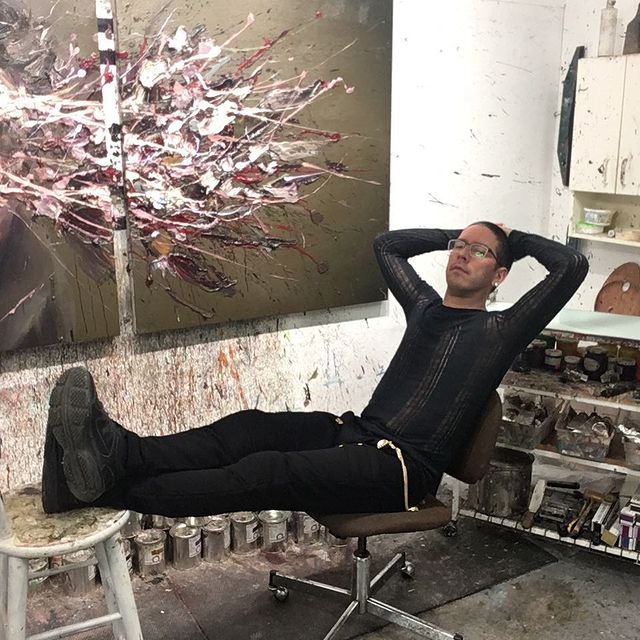
Aside from the art fairs, this traditional way of selling art is basically trying to get other people to market you and sell your art for you. In other words, it is an “indirect” way of selling art.
It is where you rely on others. Where you are at the mercy of others.
The traditional way of selling art is extremely difficult and has a limited number of success stories to show for it. Even when you lift up the hood, many who are thought of as “successful” are really just “getting by”.
Those who have managed to thrive with the traditional way are pretty rare. Many of them went on to open their own physical art galleries in their home towns and some have done so in locations across the world. The reality is, the traditional way of selling art has been a struggle for most. It has resulted in the starving artist problem that is so widely known today.
But the market has shifted.
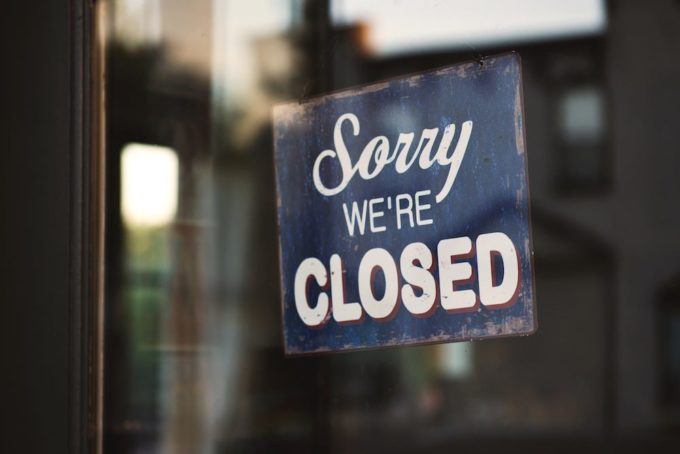
The traditional way of selling art is where the market used to be. It is no longer where it is.
More and more art galleries are closing every day. A simple google search of “art galleries closing” on google will reveal hundreds of pages of articles about more and more physical art galleries closing everywhere.
Art publishers have been experiencing steep declines in revenue and many are out of business or will be soon.
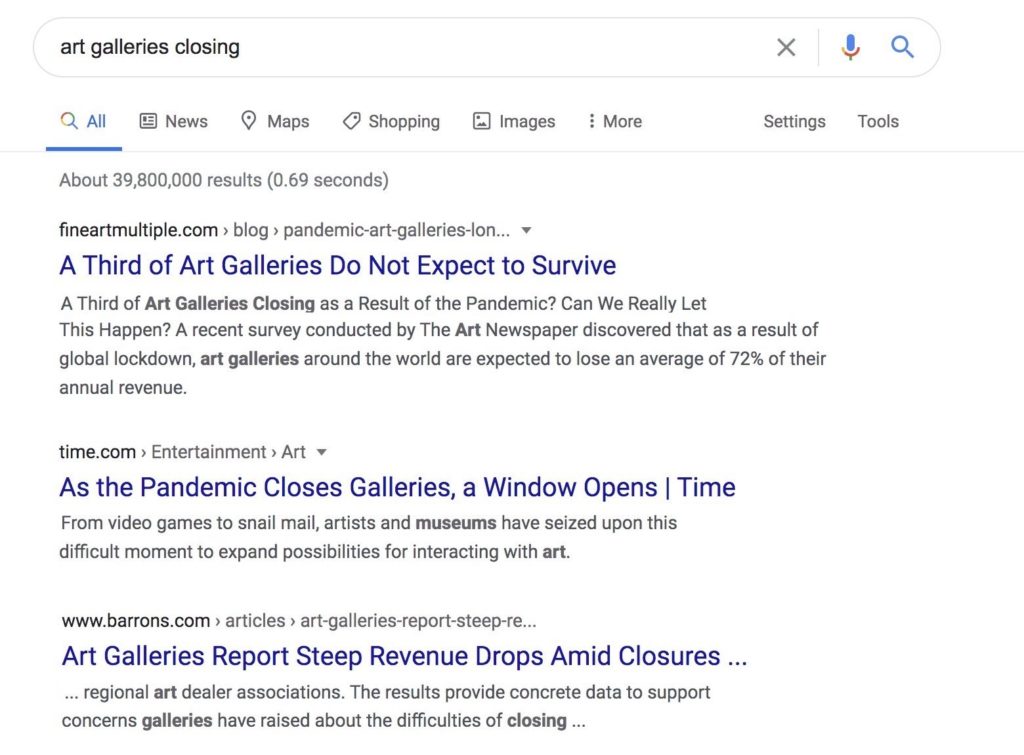
eanwhile, the online art market has exploded.
This has been widely documented. It has been, and continues to cannibalize the traditional channels we mentioned earlier.
This has brought forth a unique and incredible opportunity for artists. One that was never possible before.
There is now a much easier, faster, and sustainable way of selling art and turning it into a substantial and sustainable business. Artists have been doing it for the last 5 years, and those who did are in a completely different position today.
So if these artists are not selling through art galleries, they are not uploading their work to Fine Art America and other online galleries, and if a publisher did not license their artwork – then where on earth is their success coming from?
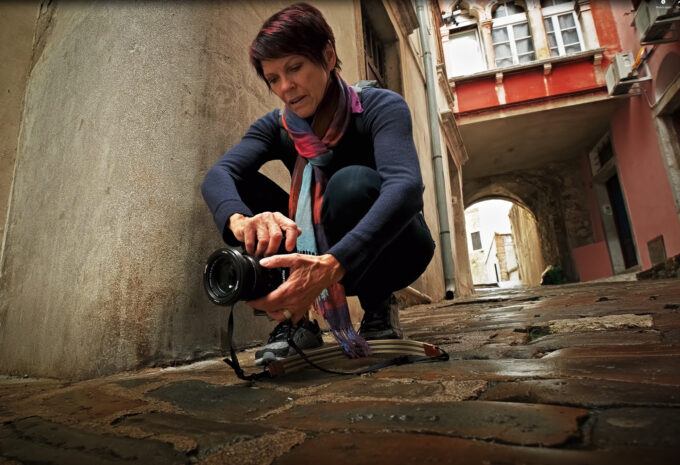
Their success is coming from running their own art gallery business, online.
They don’t rely only on other galleries. They don’t rely on any other middle-men to sell their art. It is important to note that most of them still sell in galleries. They still sell at local art fairs. They still do anything that has worked and earned them money.
However, they also run their own gallery. And that is the key difference.
If you speak to a traditional-minded and a contemporary-minded artist, you will find that they have a completely different mindset. The traditional-mindset artist has always thought about their website as a passive tool.
They never thought of it as having any relation to running an art gallery business. It’s only ever been a glorified business card or a portfolio with a main purpose of supporting their traditional way of selling art.
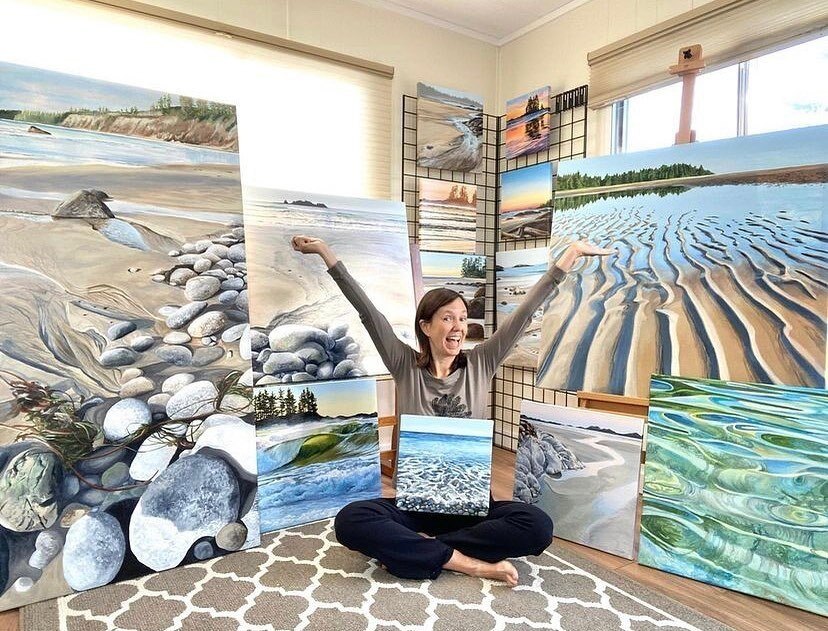
Artist Kelley Corbett
Today, when you ask a traditional-mindset artist about how they plan to grow their business, their response always includes a mix of traditional methods.
Things like “I just need to get more galleries”.
Or “I just need a publisher to represent me or break into the interior design market.”
The contemporary-mindset artist is now on a slightly modified path. They still do everything a traditional-minded artist has been doing, but they also run their own art gallery business, online. It’s a completely different mindset. And when you have a different mindset, you think about your business and your future differently.
It changes your priorities, which changes what you decide to work on today as the next most important task. Contemporary-minded artists have the mindset that their art gallery website as if it was a digital version of their very own real physical retail art gallery.
You create, we do all the technical stuff that makes it sell.
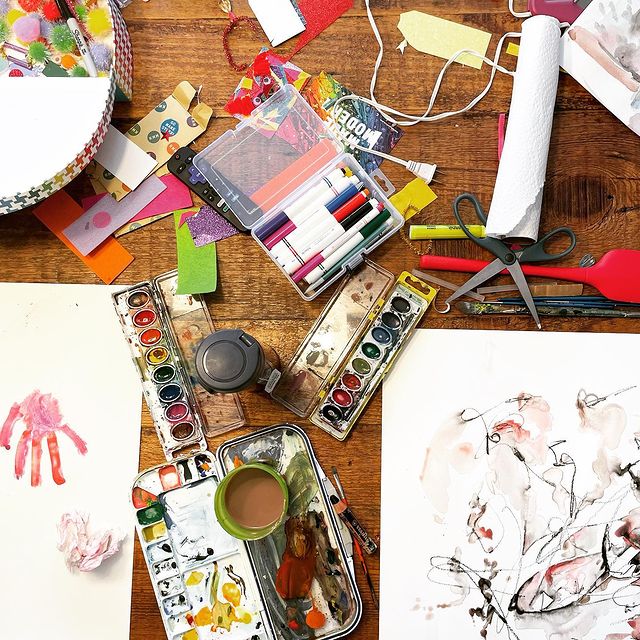
It’s not a passive tool. It’s an active, real business.
They think of visitors who come to their website like patrons who just walked into the front door of their art gallery. As such, they make it look and feel like an art gallery. They start thinking about how they can provide the best experience that will cater to their buyers. One that is enjoyable, that will keep them engaged and inside the gallery for as long as possible, and most importantly, one that will help them make buying decisions.
Think about it – if you had the opportunity to open your own retail physical gallery in your nearest town or city, and you had full control over how it looked, how your customers felt, what type of experience they had….wouldn’t you do the same? Wouldn’t you do everything you could to provide the best art-buying experience possible?
Now, let’s talk about why artists are running their own art galleries. The upsides.
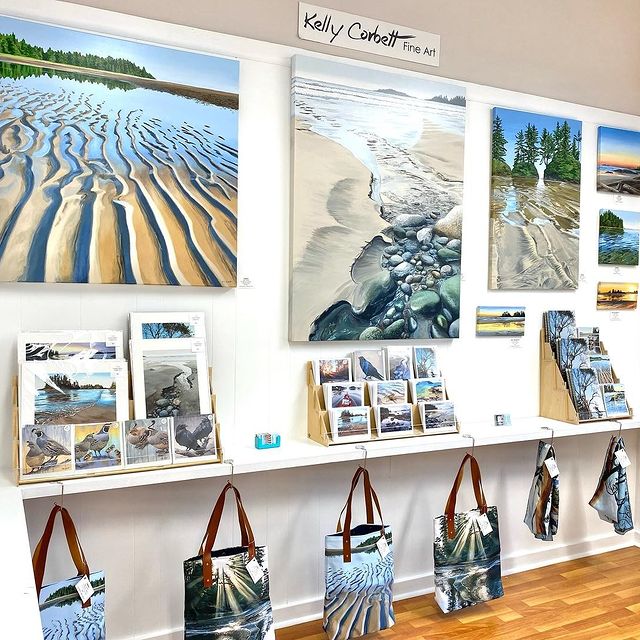
First and foremost is the financial opportunity. As we mentioned earlier, there are full-time artists selling over $100,000 per year from their own art galleries. There are also stay at home moms and dads who sell $5,000-10,000 per year. These are not small sums.
Running your own art gallery online is providing artists with the largest financial opportunity and upside potential when compared to any other alternative sales channel. This alone should be enough reason to take it seriously.
Second, it is easy and low maintenance to run. Once you launch the art gallery, aside from updating it with new products, you have nothing left to do but marketing to get people in the door and facilitate orders. If you sell prints, can be handled automatically with print-on-demand.
Furthermore, it doesn’t matter if you are busy or you don’t want to put in much work. You can spend whatever time you want on the art gallery business. You’ll get out what you put in. If you want to make more money, put more time into marketing. If you are happy with your income, do whatever you please. It doesn’t matter either way because the ongoing costs are so low, it costs you less than a steak dinner to keep it going. Which brings us to our next point.
Third, launching an online art gallery is inexpensive and the ongoing costs of running it are extremely low. This means anyone can do it – regardless of your experience or success level as an artist. Full-timers, part-timers, and hobbyists. This benefit also means you can keep your art gallery running for many, many years all while you continue building it into something significant like these other artists have. This could take one year or several years; it doesn’t really matter.
Fourth, you will have an unlimited market size. Translation: anyone, anywhere in the world can buy from you, and you can market directly to anyone. What most artists don’t realize is that when they sell to physical retail art galleries, or when they exhibit at local fairs, these venues are limited to the local clientele that can be physically present at these locations.
It’s a limited market. This is one of the biggest downsides of the traditional way of selling art. Furthermore, this limitation is not resolved by uploading your artwork into other gallery websites online which contains hundreds of thousands, if not millions, of other art pieces. That’s not your gallery – it’s another company’s gallery. An art gallery website that represents anything and everything, and tries to be everything to everybody, will never focus on you and your specific market.
Fifth, you will command higher prices. When you sell in the online art galleries, your only hope is that people stumble across your artwork, alongside all of the other artists competing against you with the same subject matter. Even when this happens, the sale becomes more about price than anything else. The visitor is able to price shop you against everyone else in your category. It’s a terrible situation.
In contrast, when you run your own art gallery, your sales come as a result of a deeper connection and meaning that you have with your buyers. When you are able to market to them directly, and perform romance marketing, your buyers get to know you and the meaning behind your pieces. They connect with you and your creativity, and almost feel like they know who you are inside. When this happens, buying your art is more about how you make them feel.
Price becomes a far lower priority. People will pay far more money to hang something on their wall that makes them feel good versus something that only looks good. Which brings us to our next point.
Sixth, you control the customers. When you sell through other people’s art galleries (both offline and online), you usually don’t get to know who the customer was, you usually don’t get their contact information, and you either are restricted from or have no way of approaching them to sell them more. This entire concept is at odds with the most basic fundamentals of what makes a business survive and thrive.
The strength and value of a business always comes from the size and scope of its customer base. When you have no control over your customers, you can’t push for referrals and repeat business, which means you have little control over the long-term success of your business. This puts you in a very vulnerable position in the long run.
When you run your own art gallery, you have a direct relationship with your customers. You can continually bring positivity into their lives with romance marketing. Rather than being disconnected, you’ll receive a more consistent flow of positive feedback that will feel amazing and energize you to create more.
You will also see that their connection with you is something they will spread to others on their own accord, if you just let them. Your audience size, and your customer list, will grow like compound interest as a result. You will earn repeat sales, and sales will become more consistent. In a couple of years, you will have a real business that is stable and reliable.
You create, we do all the technical stuff that makes it sell.
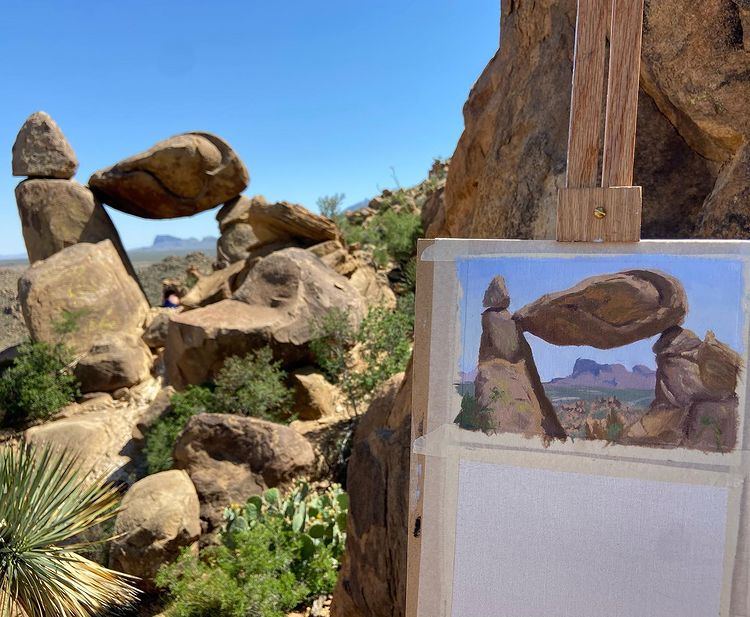
If you’re a full-time artist, part-time, or you’ve sold some art and want to give your art business a shot, the next step is to run your own art gallery, online.
It’s easy to do.
It’s inexpensive to launch.
The ongoing costs are minimal.
You can put in however much time you are capable of.
The upsides are amazing. Take advantage of this new opportunity that has only become possible in recent years. If you are, or have been following traditional methods of selling art — and they are working, great. Keep doing those things too.
You create, we do all the technical stuff that makes it sell.
We help artists and photographers run their own art galleries, online. Our goal is to make it as simple and straightforward as possible, so that it is easy to do.
First, we provide you with a proper art gallery website that provides the finest experience possible for your art buyers, so that you maximize your art sales.
Second, we provide you with all the back-office tools to run the online art gallery. This includes resources such as an order manager, contact manager, in-depth art gallery sales and visitor analytics, as well as a print-on-demand management tool (if you sell prints).
Third, we provide marketing advice and coaching, to help you get customers in the door.
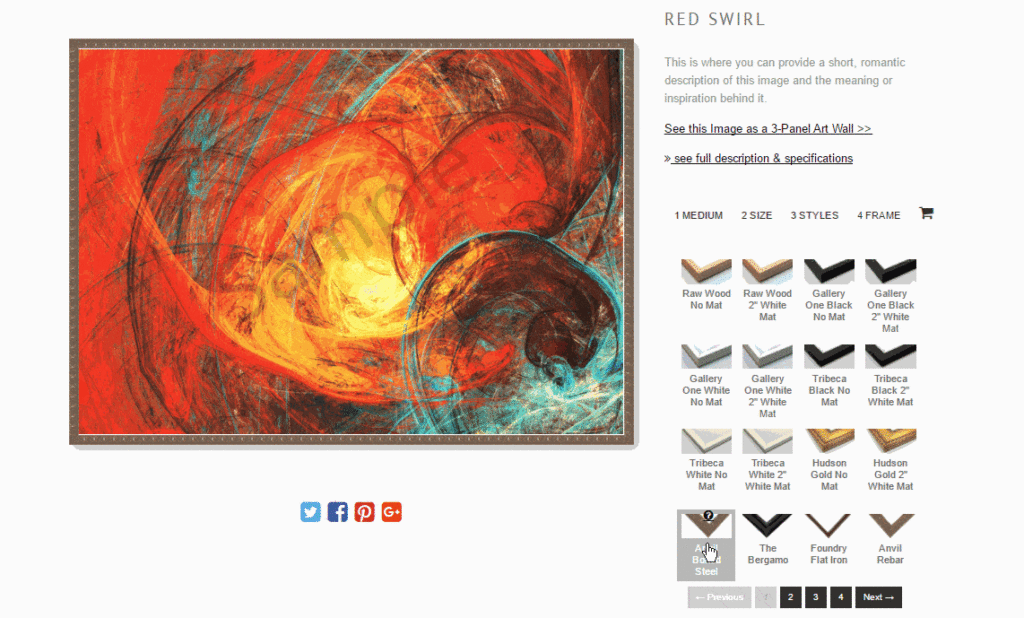
This is the most powerful aspect of our service and if you read reviews about us, it is one of the most cited reasons that artists say they love to work with us. In simple terms, basically an art-gallery business in a box. We give you everything you need to run your own art gallery online, and we make it as simple as possible to do.
You create, we do all the technical stuff that makes it sell.
In case you were wondering Art Storefronts has everything you need to start, run, and grow a successful art business. We are coming up on our tenth year in business and 👇 is how our over 8500+ customers feel about us. We have been reviewed over 1300+ times on Trust Pilot, Facebook and Google.

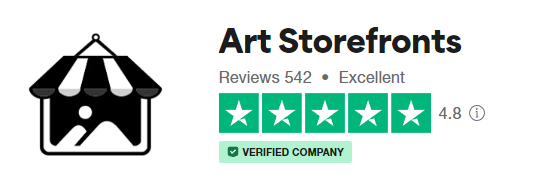




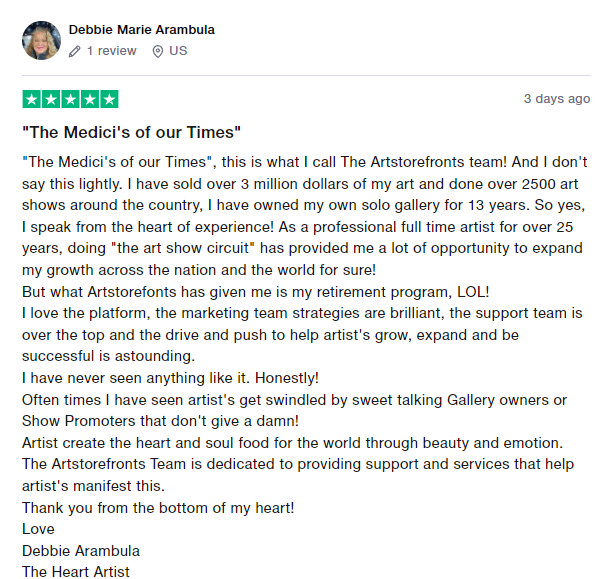
You create, we do all the technical stuff that makes it sell.
If we can't teach you, no one can!